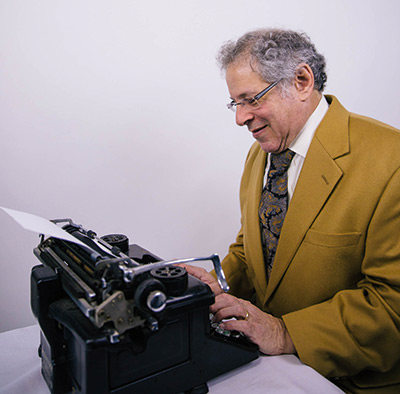 Lord Byron
Lord Byron
His is a fascinating biography, and I find that a liability when
he comes up in my teaching of a Romantics class. It is so easy to go into story after story about what would have been one of the English-speaking world’s first celebrity lives—filled with drama and complexity. It’s so interesting to talk about things like incest, violence, threatened duels, bankruptcies, exile, and the like.
Nontraditional tools
Lord Byron was a strong defender of the Luddites, but it is wonderful to go back and forth from text to information online. I talk a lot about where the action of a work is set and what is taking place. It is fascinating to teach a poem by Byron, pull up a map, and point to where he was standing when he wrote the lines.
And William Blake hand-executed so much of his work, often playing with the order of things and hand-washing in color. There are over 30 versions of his Songs of Experience, with about as many color schemes and sequences. With modern technology, it’s easy to get students to speculate about the impact of these differences: what might be the effect of his darkening this or highlighting that?
The College as a community
It was a welcoming environment 35 years ago, and I am grateful for everything I have found here. I’m excited that the College has been very focused on creating a richly diverse community and on the charge of having people from a variety of backgrounds and ideational standpoints. It is a much more diverse environment, more inclusive, and still more welcoming.
Professor of English Len Goldberg’s primary scholarly interests include the 1788–1824 Romantic movement in literature, especially the life and work of Lord Byron. Born in Detroit, he earned his BA from the University of Michigan and his MA and PhD from the University of Pennsylvania.